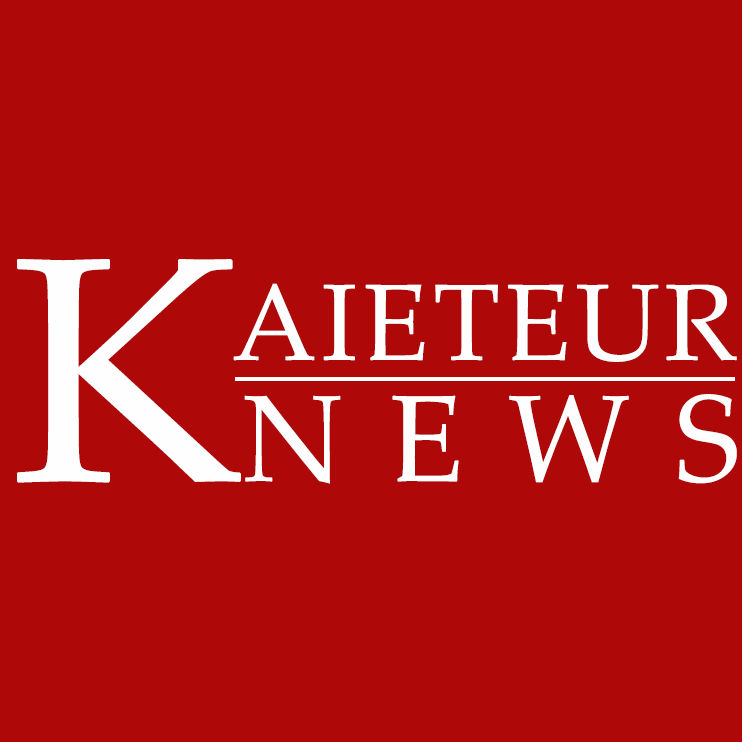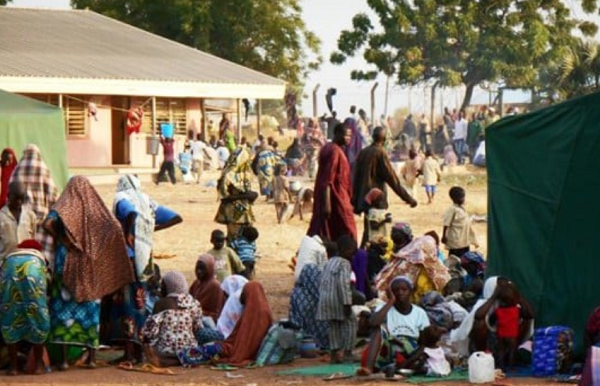By KNEWS
Copyright kaieteurnewsonline

Cybercrime law under scrutiny
Sep 10, 2025
News
…Commonwealth calls for safeguards against misuse, stronger judiciary
Guyana’s cybercrime law has been brought under the spotlight of the Commonwealth, with the international organisation urging the government to prevent the misuse of the law to suppress online speech.
It is also calling for the strengthening of judicial independence to prevent the misuse of laws that restrict freedom of expression and media freedom.
As part of its recommendations in its 2025 report, titled “Legal Restrictions on Freedom of Expression in the Commonwealth” the organisation outlined the need for governments of Commonwealth member states to reform regulations on the right to free expression online, including reforms to intermediary liability frameworks.
In its report released Monday evening, the international organisation said amid escalating attacks on free speech and the erosion of civic space, there is an urgent imperative to act decisively to safeguard freedom of expression and media freedom.
The report stated that Guyana’s Cybercrime Act of 2018 criminalises sedition, humiliation, and unauthorised storing and sharing of data relating to national security. It said efforts are underway to expand the Act to cover social media platforms, which could further suppress online discourse.
“A recent arrest under this law involved political activist Kadackie Amsterdam, who was charged after a caller on his programme allegedly suggested beheading senior officials. Proposed amendments would extend the Act’s reach to social media platforms, raising further concerns,” the report relayed.
According to the report, in a reversal of progress, Guyana’s 2018 Cybercrime Act also reintroduced and expanded sedition provisions – raising penalties from two to five years – despite opposition. The law has been used to arrest and silence critics.
It said sedition laws remain a significant barrier to free expression in the region, often used to suppress political dissent.
The report cited former president of the Guyana Press Association, Nazima Raghubir addressing the aspect of sedition in the cybercrime law.
“The Guyana Press Association is the latest body to call for the removal of the offence of sedition from the Cybercrimes Bill because of the danger it presents to free speech. According to clause 18 of the Bill, persons commit an offence of sedition when they attempt to bring into hatred or excite disaffection towards the government,” Raghubir is quoted as saying.
Guyana’s Cybercrime Act was passed in 2018 and addresses various aspects of harassment using electronic media.
Section 19 of the Act states that, among other things, a person commits and offence if…he/she uses a computer system to publish or transmit electronic data that intimidates a person, threatens the other person to use violence to him or a family member or injure their property, publish or send electronic data that is obscene…threaten to or publish information that causes damage to the reputation of another person or subjects another person to public ridicule, contempt, hatred or embarrassment. Further. Fines under this section amount to $5 million and three years’ imprisonment for conviction and $10 million and imprisonment for ten years for conviction on indictment.
Back in 2024, Attorney General and Minister of Legal Affairs, Anil Nandlall, SC reported that the Act was under further review to address the use of the various social media platforms to “attack” private citizens.
“Something has to be done about the use of the social media as a weapon against the citizens of this country…A government cannot stand idly by in the face of such onslaught on its citizens, that government will be failing in its responsibilities,” Nandlall stated on his issues in the news programme.
He has said that information posted on social media is “completely unregulated” and causes damage to people’s reputation, people’s character, that of their family. Therefore, “a regulatory framework must be installed and installed very quickly to arrest this situation and the penalties for violation of this regulatory framework must be condign. What we have here is an exceptional situation and an exceptional situation requires an exceptional response.”
At the October 2024 Commonwealth Heads of Government Meeting (CHOGM) in Samoa, leaders adopted the Commonwealth Principles on Freedom of Expression and the Role of the Media in Good Governance (the Media Principles). Rooted in the Commonwealth Charter and grounded in international law, these media principles reaffirm member states’ commitment to democracy, the rule of law, and human rights.
The Commonwealth principles on freedom of expression and the role of the media in good governance identify areas where member states should align domestic laws and practices with international standards:
It recommends that member states should consider repealing or amending laws which unduly restrict the right to freedom of expression. Member states should also put in place effective laws and measures to establish a safe and enabling environment for journalists and media workers to work without fear of violence, abuse, discrimination or interference, including online… Member States should ensure that State organs and agents, in particular law enforcement officers and military personnel, promote and respect international human rights and humanitarian law obligations relating to the safety of journalists and their protection as civilians in situations of conflict.
The adoption of the media principles represents a pivotal opportunity to address the widespread use of outdated and repressive laws, including those on criminal defamation, sedition, and blasphemy, and to introduce strong protections for journalists, civil society actors, and media workers.
The report said media principles, initially championed by Commonwealth Accredited Organisations in 2018, are not just symbolic – they provide a comprehensive framework for the protection of free expression and media freedom as an essential foundation for the rule of law and democratic governance. They affirm the duty of Member States to create a safe and enabling environment for the exercise of free expression – both online and offline – and the role of civil society in holding governments accountable.
The report called for the amendment of the cybercrime laws in Guyana and other Caribbean nations to remove vague provisions and prevent the criminalisation of legitimate online expression.
“Improve the implementation of right to information (RTI) laws in those countries where such laws exist but remain underused or inactive. Ensure public interest override clauses are included in the legislation. Ensure adequate resourcing of supporting mechanisms, and functional oversight,” the report relayed.
cybercrime law, freedom of expression, judiciary, media freedom, scrutiny



